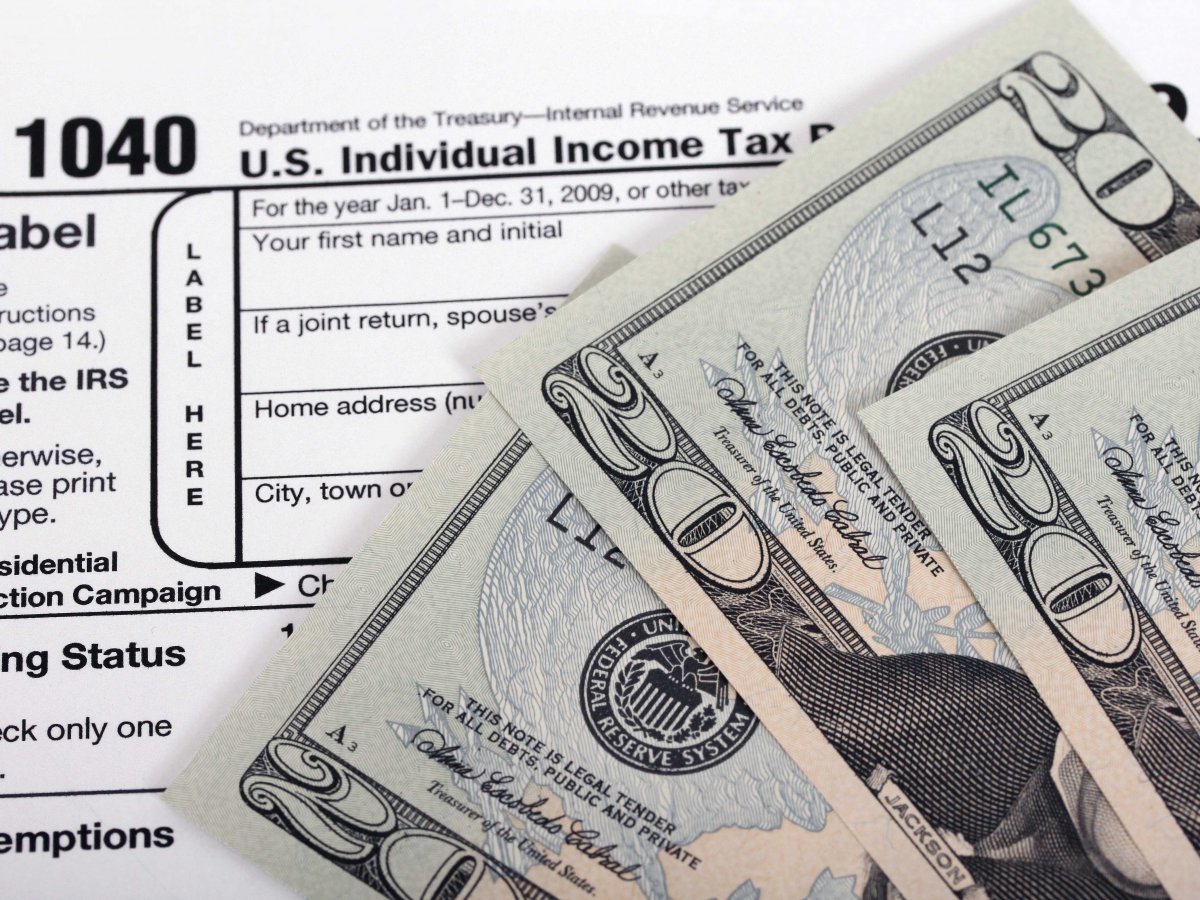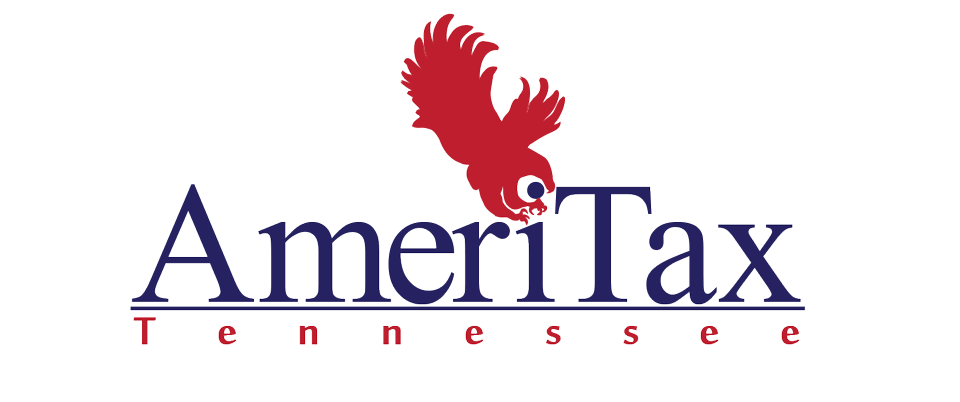Helpful Facts
Affordable Care Act Info
Electronic Filing (E-File)
Refund Options
Help with Taxes and Forms
W2 Download
Frequently Asked Questions
Avoiding Tax Problems
Electronic Filing (E-File)
Refund Options
Help with Taxes and Forms
W2 Download
Frequently Asked Questions
Avoiding Tax Problems
© AmeriTax TN 2019 All Rights Reserved
1268 Jackson Felts Road
Joelton, TN 37080
Office (615) 247-8772
Fax (615) 247-8774
lisawilliams@ameritaxtn.com
Joelton, TN 37080
Office (615) 247-8772
Fax (615) 247-8774
lisawilliams@ameritaxtn.com

Taxable or Not – What You Need to Know about Income
All income is taxable unless the law excludes it. Here are some basic rules you should know to help you file an accurate tax return:
•Taxed income. Taxable income includes money you earn, like wages and tips. It also includes bartering, an exchange of property or services. The fair market value of property or services received is taxable.
Some types of income are not taxable except under certain conditions, including:
•Life insurance. Proceeds paid to you because of the death of the insured person are usually not taxable. However, if you redeem a life insurance policy for cash, any amount that you get that is more than the cost of the policy is taxable.
•Qualified scholarship. In most cases, income from this type of scholarship is not taxable. This means that amounts you use for certain costs, such as tuition and required books, are not taxable. On the other hand, amounts you use for room and board are taxable.
•State income tax refund. If you got a state or local income tax refund, the amount may be taxable. You should have received a 2014 Form 1099-G from the agency that made the payment to you. If you didn’t get it by mail, the agency may have provided the form electronically. Contact them to find out how to get the form. Report any taxable refund you got even if you did not receive Form 1099-G.
Here are some types of income that are usually not taxable:
•Gifts and inheritances
•Child support payments
•Welfare benefits
•Damage awards for physical injury or sickness
•Cash rebates from a dealer or manufacturer for an item you buy
•Reimbursements for qualified adoption expenses
You can get it on IRS.gov/forms anytime, or contact us for more details.
If you found this Tax Tip helpful, please share it through your social media platforms.
All income is taxable unless the law excludes it. Here are some basic rules you should know to help you file an accurate tax return:
•Taxed income. Taxable income includes money you earn, like wages and tips. It also includes bartering, an exchange of property or services. The fair market value of property or services received is taxable.
Some types of income are not taxable except under certain conditions, including:
•Life insurance. Proceeds paid to you because of the death of the insured person are usually not taxable. However, if you redeem a life insurance policy for cash, any amount that you get that is more than the cost of the policy is taxable.
•Qualified scholarship. In most cases, income from this type of scholarship is not taxable. This means that amounts you use for certain costs, such as tuition and required books, are not taxable. On the other hand, amounts you use for room and board are taxable.
•State income tax refund. If you got a state or local income tax refund, the amount may be taxable. You should have received a 2014 Form 1099-G from the agency that made the payment to you. If you didn’t get it by mail, the agency may have provided the form electronically. Contact them to find out how to get the form. Report any taxable refund you got even if you did not receive Form 1099-G.
Here are some types of income that are usually not taxable:
•Gifts and inheritances
•Child support payments
•Welfare benefits
•Damage awards for physical injury or sickness
•Cash rebates from a dealer or manufacturer for an item you buy
•Reimbursements for qualified adoption expenses
You can get it on IRS.gov/forms anytime, or contact us for more details.
If you found this Tax Tip helpful, please share it through your social media platforms.
Top Things You Should Know about the Child Tax Credit
The Child Tax Credit may save you money at tax-time if you have a qualified child. Here are six things you should know about the credit.
1. Amount. The Child Tax Credit may help reduce your federal income tax by up to $1,000 for each qualifying child that you are eligible to claim on your tax return.
2. Additional Child Tax Credit. If you qualify and get less than the full Child Tax Credit, you could receive a refund even if you owe no tax with the Additional Child Tax Credit.
3. Qualifications. For this credit, a qualifying child must pass several tests:
• Age test. The child must have been under age 17 at the end of 2014.
• Relationship test. The child must be your son, daughter, stepchild, foster child, brother, sister, stepbrother, or stepsister. The child may be a descendant of any of these individuals. A qualifying child could also include your grandchild, niece or nephew. You would always treat an adopted child as your own child. An adopted child includes a child lawfully placed with you for legal adoption.
• Support test. The child must not have provided more than half of their own support for the year.
• Dependent test. The child must be a dependent that you claim on your federal tax return.
• Joint return test. The child cannot file a joint return for the year, unless the only reason they are filing is to claim a refund.
• Citizenship test. The child must be a U.S. citizen, a U.S. national or a U.S. resident alien.
• Residence test. In most cases, the child must have lived with you for more than half of 2014.
4. Limitations. The Child Tax Credit is subject to income limitations. The limits may reduce or eliminate your credit depending on your filing status and income.
5. Schedule 8812. If you qualify to claim the Child Tax Credit, make sure to check whether you must complete and attach Schedule 8812, Child Tax Credit, with your tax return. Contact us or visit IRS for complete information.
The Child Tax Credit may save you money at tax-time if you have a qualified child. Here are six things you should know about the credit.
1. Amount. The Child Tax Credit may help reduce your federal income tax by up to $1,000 for each qualifying child that you are eligible to claim on your tax return.
2. Additional Child Tax Credit. If you qualify and get less than the full Child Tax Credit, you could receive a refund even if you owe no tax with the Additional Child Tax Credit.
3. Qualifications. For this credit, a qualifying child must pass several tests:
• Age test. The child must have been under age 17 at the end of 2014.
• Relationship test. The child must be your son, daughter, stepchild, foster child, brother, sister, stepbrother, or stepsister. The child may be a descendant of any of these individuals. A qualifying child could also include your grandchild, niece or nephew. You would always treat an adopted child as your own child. An adopted child includes a child lawfully placed with you for legal adoption.
• Support test. The child must not have provided more than half of their own support for the year.
• Dependent test. The child must be a dependent that you claim on your federal tax return.
• Joint return test. The child cannot file a joint return for the year, unless the only reason they are filing is to claim a refund.
• Citizenship test. The child must be a U.S. citizen, a U.S. national or a U.S. resident alien.
• Residence test. In most cases, the child must have lived with you for more than half of 2014.
4. Limitations. The Child Tax Credit is subject to income limitations. The limits may reduce or eliminate your credit depending on your filing status and income.
5. Schedule 8812. If you qualify to claim the Child Tax Credit, make sure to check whether you must complete and attach Schedule 8812, Child Tax Credit, with your tax return. Contact us or visit IRS for complete information.
Claiming a Tax Deduction for Medical and Dental Expenses
Your medical expenses may save you money at tax time, but a few key rules apply. Here are some tax tips to help you determine if you can claim a tax deduction:
You must itemize. You can only claim your medical expenses that you paid for in 2014 if you itemize deductions on your federal tax return. If you take the standard deduction, you can’t claim these expenses.
AGI threshold. You include all the qualified medical costs that you paid for during the year. However, you can only deduct the amount that is more than 10 percent of your adjusted gross income.
Temporary threshold for age 65. If you or your spouse is age 65 or older, the AGI threshold is 7.5 percent of your AGI. This exception applies through Dec. 31, 2016.
Costs to include. You can include most medical and dental costs that you paid for yourself, your spouse and your dependents. Exceptions and special rules apply. Costs reimbursed by insurance or other sources do not qualify for a deduction.
Expenses that qualify. You can include the costs of diagnosing, treating, easing or preventing disease. The costs you pay for prescription drugs and insulin qualify. The costs you pay for insurance premiums for policies that cover medical care qualify. Some long-term care insurance costs also qualify. For more examples of costs you can and can’t deduct, see IRS Publication 502, Medical and Dental Expenses. You can get it on IRS.gov/forms anytime.Travel costs count. You may be able to claim travel costs you pay for medical care. This includes costs such as public transportation, ambulance service, tolls and parking fees. Need help? Contact us.
Your medical expenses may save you money at tax time, but a few key rules apply. Here are some tax tips to help you determine if you can claim a tax deduction:
You must itemize. You can only claim your medical expenses that you paid for in 2014 if you itemize deductions on your federal tax return. If you take the standard deduction, you can’t claim these expenses.
AGI threshold. You include all the qualified medical costs that you paid for during the year. However, you can only deduct the amount that is more than 10 percent of your adjusted gross income.
Temporary threshold for age 65. If you or your spouse is age 65 or older, the AGI threshold is 7.5 percent of your AGI. This exception applies through Dec. 31, 2016.
Costs to include. You can include most medical and dental costs that you paid for yourself, your spouse and your dependents. Exceptions and special rules apply. Costs reimbursed by insurance or other sources do not qualify for a deduction.
Expenses that qualify. You can include the costs of diagnosing, treating, easing or preventing disease. The costs you pay for prescription drugs and insulin qualify. The costs you pay for insurance premiums for policies that cover medical care qualify. Some long-term care insurance costs also qualify. For more examples of costs you can and can’t deduct, see IRS Publication 502, Medical and Dental Expenses. You can get it on IRS.gov/forms anytime.Travel costs count. You may be able to claim travel costs you pay for medical care. This includes costs such as public transportation, ambulance service, tolls and parking fees. Need help? Contact us.
Cut Taxes and Save on Energy Bills
You can reduce your taxes and save on your energy bills with certain home improvements. Here are some key facts that you should know about home energy tax credits:
Non-Business Energy Property Credit
Part of this credit is worth 10 percent of the cost of certain qualified energy-saving items you added to your main home last year. This may include items such as insulation, windows, doors and roofs.
The other part of the credit is not a percentage of the cost. This part of the credit is for the actual cost of certain property. This may include items such as water heaters and heating and air conditioning systems. The credit amount for each type of property has a different dollar limit.
This credit has a maximum lifetime limit of $500. You may only use $200 of this limit for windows.
Contact us for details!
You can reduce your taxes and save on your energy bills with certain home improvements. Here are some key facts that you should know about home energy tax credits:
Non-Business Energy Property Credit
Part of this credit is worth 10 percent of the cost of certain qualified energy-saving items you added to your main home last year. This may include items such as insulation, windows, doors and roofs.
The other part of the credit is not a percentage of the cost. This part of the credit is for the actual cost of certain property. This may include items such as water heaters and heating and air conditioning systems. The credit amount for each type of property has a different dollar limit.
This credit has a maximum lifetime limit of $500. You may only use $200 of this limit for windows.
Contact us for details!

AmeriTaxTN © Copyright 2017 | All Rights Reserved
©2017 Belinda Faye Web Designs
©2017 Belinda Faye Web Designs
